Περιεχόμενα
Edited by Georgia Nakou
Maria Efimova fled Malta in 2017 after blowing the whistle on her former employer, Pilatus Bank, in a high-level corruption case famously covered by the Maltese journalist Daphne Caruana Galizia.
Efimova, a Russian national with a background in financial compliance, had provided information to Caruana Galizia linking the Maltese prime minister’s wife via Pilatus Bank to an offshore company which received payments from Azerbaijan’s ruling family. Shortly after breaking the story, the journalist was killed in a car bomb in October 2017.
Caruana Galizia’s revelations and subsequent murder brought down the Maltese government in the wake of unprecedented anti-corruption protests in 2017, and eventually prompted the resignation of Maltese Prime Minister Joseph Muscat in 2019, after one of his close associates was implicated in the crime. The self-confessed middleman in the murder was found stabbed in his cell hours prior to testifying at the trial. An accomplice to the murder pled guilty and was sentenced to 15 years in prison in Malta in February 2021 as part of a plea bargain, while three other men have also been charged.
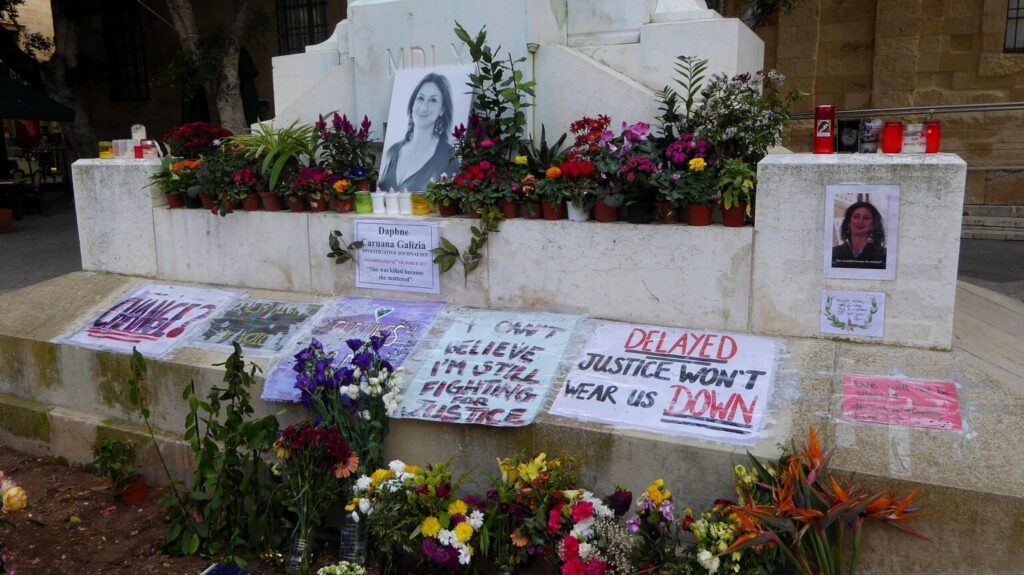
Efimova and her family faced a smear campaign, intimidation, and threats on their lives, following her decision to go to the Maltese authorities with her information. They eventually fled Malta in the summer of 2017, four months prior to Caruana Galizia’s murder. While in hiding, Efimova continued to receive threats, and eventually sought protection in Greece, where she had been living on the island of Crete with her husband and two young children. To her surprise, she was arrested on charges of embezzlement contained in a Maltese warrant.
In a landmark ruling, the Greek Supreme Court turned down Malta’s extradition request. The ruling was unprecedented, given that both countries are EU member states, and it would have been hard for the Greek courts to question the rule of law in Malta. It was based not on the substance of the charges, but on the grounds that the charges were too vague. An arrest warrant issued by Cyprus at the same time as that of Malta was dismissed by Interpol on the grounds that it was politically motivated.
However, a happy end is not in sight for the whistleblower just yet.
Efimova’s husband, Pantelis Varnavas, was out running errands near their home in Crete on the morning of November 17, 2020, when he was stopped in the street by police officers and arrested. The officers informed him they were acting on a warrant issued by Cyprus.
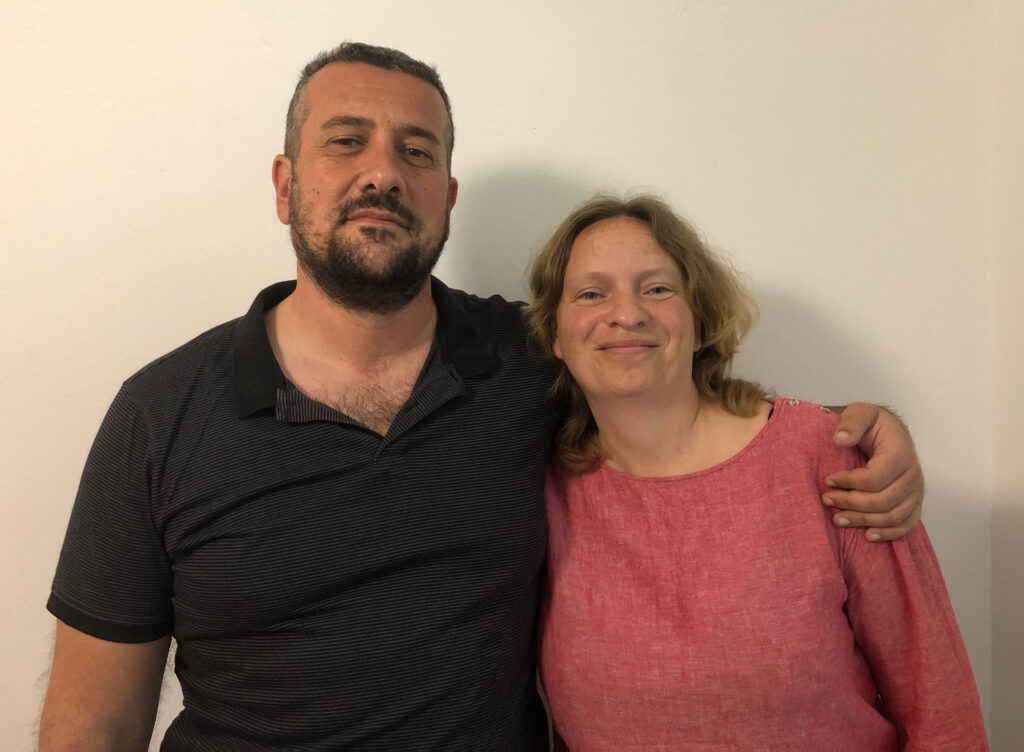
The interview
Reporters United spoke to the couple as they await Varnavas’s extradition hearing.
You are now faced with a new arrest warrant, an upcoming trial, and the worrying possibility that Pantelis might be extradited to Cyprus. Having lived in both countries, do you believe that the Cyprus extradition request is connected with the business in Malta?
Pantelis Varnavas (PV): There is definitely a connection between the two countries linked to money laundering. You can see this for example in the Al Jazeera “Cyprus Papers” exposé. The President of the Cyprus Parliament says (at around 46’45’’ in the video), “If there is a problem in Cyprus [with obtaining a passport for a fictitious Chinese client with a criminal record in China] maybe we can go to another European country with the contacts I have with presidents of Parliament […] I know Malta. I know Latvia. I know Slovenia. But […] he has to send money here to be sure that we do something”. There is a definite link through specific companies and individuals.
How do we arrive at Pantelis’s arrest in mid-November?
PV: We were not hiding in Greece. When we first arrived, I took exams to work in security, and I had to undergo background checks for the job, where they check your criminal record. Last year I got an arms license and bought myself a gun. In November 2020 I was on the way to the police station to renew the license, when two police officers approached me and said, “come with us”. They put me in the police car and locked the doors. This is when I realised I was being arrested.
We have to joke about it because – and this is not funny in the slightest – we have been living in this situation for three years now. We are so stressed that when I was arrested in Crete I felt almost relieved.
Do you mean a gun for hunting or for your own protection?
PV: I never kill animals. I belong to a shooting club, but it is not a hobby. I was forced to do it for safety reasons, because of the threats we have received on Facebook, and in the street. I wanted to be able to protect my wife and my children. That is why I say that when I was arrested I felt relieved. You can’t live like this. You can’t live your life under constant threat, because eventually you become paranoid. On the other hand, I know that if I am extradited to Cyprus I am done for, given the individuals involved.
Are the names on the warrant familiar to you?
Mafia Efimova (ME): One of Pantelis’s colleagues told us that at one point they were checking all the transactions that Pantelis had made during his time at the Bank of Cyprus. In reality, the Cyprus arrest warrant is identical to the one which was issued against me in 2017. That one was dismissed by Interpol, as it was deemed to have been issued for political reasons. Now Pantelis stands accused of the same things as my accomplice. I believe they just needed a new charge slightly different from the last one, so as to get through Interpol, and they found this business with Bank of Cyprus. I am convinced that this warrant is intended to intimidate me.
One would expect that since Greece’s Supreme Court ruled against your extradition to Malta, Maria, your life would take a different course, that you would be able to calm down and start a new chapter…
PV: This is all to do with Malta, the problem has never gone away. When we started to claim Maria’s back pay from Pilatus Bank, we never knew how far and how high up this would reach – all the way to Joseph Muscat, Malta’s then-Prime Minister. I remember one day in Crete someone approached me in the street on my way to work and said to me in English, “Hello from Joseph”. Later some of his supporters threatened us via Facebook. Malta is a small country and there is a great deal of animosity between the two parties, Labour and Nationalists. We have complained about the threats to the police, both in Greece and in Malta.
ME: And we have never received a response.
In January 2020 Maria started a crowdfunding campaign to raise money for you lawyer’s fees to cover your expenses for applying for whistleblower status, as well as for hiring a forensic document examiner to certify the documents you have in your possession pertaining to corruption in Malta. Do you believe it is these documents they are afraid of?
PV: My wife has stated that we have in our possession documents proving that the wife of the former prime minister of Malta had an account at Pilatus Bank connected to a Panamanian offshore company named Egrant. Malta is pressuring us to release these documents to this day, but we are not willing to do this before being granted whistleblower status in Malta or Greece. The Maltese courts have made it clear that if the documents have not come into her possession by a legal route then she will be arrested on the spot. We asked senior opposition politicians and lawyers to help us obtain whistleblower status in Malta since they are pressuring us to publish the documents. We had been promised this, but in the end we got no help.
ME: I contacted Malta regarding whistleblower status a year ago, but have not received any response.
Why do you believe the Maltese opposition did not help?
PV: We don’t know. Perhaps they are worried that Malta’s reputation will be harmed, who knows?
ME: When the prime minister was forced to resign, I was overjoyed because I believed we would finally be able to release the documents. We had to certify their authenticity so that I wouldn’t be accused of forgery. This certification alone costs €12,000. That is why we started fundraising, and to cover lawyers’ fees, to protect myself and my family, and to avoid prosecution for the way I acquired the documents. The amount was raised, but, as Pantelis has said, those in the opposition who promised to help have vanished.
PV: We need the protection conferred by whistleblower status. Words alone will not save us. Nor would we ever sell the documents. These are historical documents for Malta, for the people who came out onto the streets, who support us and want to know the truth.
Whistleblower status is to do strictly with legal protection. However, there is the potential to be granted whistleblower status by the Council of Europe, which would mean your identities would be erased and you would have to start a new life in a foreign country. Are you prepared for such a drastic step?
PV: We have been living like this for three years now… Suddenly I found myself in shooting clubs and taking a pummelling to learn kick-boxing, to be prepared. How can we continue like this?
Does publicity give you some kind of protection?
PV: The truth is a kind of safeguard. Everything must come to light. People should know and make their judgement. This business seems complicated, but I believe that things are simple, and there is a lot of money involved. On the one hand there are people protesting, fighting for the truth, and on the other hand are those making lots of money.
If you could turn back time, would you change everything to have a different life?
PV: No, we would not want to turn back time. I am sometimes asked by colleagues, “Hey Pantelis, why are you doing this?”. Everyone says they want to do the right thing, but the issue is what do you do when the moment arrives? All of this takes its toll, but on the other hand our grandparents lived in exile for their beliefs so we can’t give up now.
ME: No. What was I to say? “OK, it’s fine, it doesn’t matter”? No. You don’t back down at the critical moment. I believe in God, and I believe that things happened this way for all of this to come out in the open. I have no regrets.
Your children are now 13 and 11 years old. You have told me, Maria, that when they were younger they treated what was happening like a kind of spy game. How do they feel about it today?
ME: We explained some things to us so that they can be careful. We don’t hide the truth from them. In any case, I post on Facebook, and they are now old enough to go online and read. I tell them to be careful, but not to worry that there is no solution. They know that if anyone harms them or sends them a message they are to tell us immediately. What makes me happy is that the children never said to me “Mum, why did you do all of that and get into trouble?”. On the contrary, they support me.
You also faced serious financial difficulties because of all this business. How are you today?
ME: Fortunately we are both working. I have started a lending library. If we didn’t have to keep paying our lawyers we would be comfortable. Imagine, we are still paying the lawyer who represented me in 2018. The total expenses we have incurred up until now are between €30,000-35,000.
The most important thing now is for Pantelis not to get extradited to Cyprus, because we do not believe he will have a fair trial. And Greece must grant us whistleblower status so that we can stop living in fear of arrest. It is exhausting to have to worry that every time the doorbell it might be the police. We will keep fighting, and I keep hoping that things will change. Both in Cyprus and in Malta people know very well what is going on.
The new warrant
To Varnavas and Efimova the warrant from Cyprus suggests a concerted attempt to intimidate the whistleblower’s family. Eva Ambazi, a lawyer for the family, agrees. “The new warrant for Efimova’s husband contains the same charges made against Efimova in the first warrant issued by Cyprus, which was dismissed by Interpol,” she notes. “They are accusing him of being an accomplice to embezzlement because they had a joint bank account and owned assets in common. Effectively, they are accusing him of unlawful enrichment for being married to Efimova”.
“There is only one new charge directed at Varnavas, which has to do with alleged embezzlement”, Ambazi says. “However we have all the evidence to disprove this. The charges appear trumped-up, as they have been drawn up in a childish manner and are easily disproven by evidence. In Cyprus the charges in the warrant are criminal offences, while in Greece they are misdemeanours. If Varnavas is extradited, he risks a jail sentence which could exceed 100 years”.
Mark Worth is a founder of Whistleblowing International and a member of the UN’s expert committee on whistleblowing, with forty years’ experience working with whistleblowers. He helps whistleblowers navigate legal procedures, and supports them in finding employment and protecting themselves and their families.
“Family members of whistleblowers also are commonly targeted”, explains Worth, “but usually it is more indirect and subtle, through harassment, intimidation and being ostracized. There is very little that can be done about this, because most whistleblower protection laws do not cover family members, and subtle retaliation can be very difficult to prove”.
Whistleblowers in Greece
Notwithstanding the Supreme Court decision, Greece still lacks a legal framework for the protection of whistleblowers. In March 2018, MEPs from across the political spectrum publicly supported Efimova, in a letter to the Greek authorities demanding the granting of protection and asylum for the whistleblower. A month later, the European Commission adopted the Whistleblowing Directive, which obliges the 27 EU member states to put in place legislation for whistleblower protection by the end of 2021.
The #Speak-Out initiative, spearheaded by Reporters United with Transparency International and Vouliwatch, is campaigning for the adoption of strong whistleblowing protection measures by Greece. At present, the committee for drafting the national legislation has been convened, but the Directive has not yet been transposed. The organisations involved in #Speak-Out have written to the Greek government asking to have input in the drafting of the legislation.
“Unfortunately, we see that in Greece whistleblowers are viewed on a par with informants, as criminals”, says Ambazi. “We are behind in offering protection for individuals who report corruption. As good as the Directive is, there is still the risk that it will be distorted or watered down in the transposition process, so I don’t know whether I am optimistic”, she comments.
Worth also says he is “cautiously optimistic” about the legislation. “The Directive is quite good on paper”, he says. “But nearly every EU country has a very poor record when it comes to protecting and valuing citizens who report corruption, so people still need to be very careful. They should call a lawyer or a specialized NGO before making a report. They should not automatically trust that the system will work for them”.
As things stand, Varnavas has to wait and see whether Greece will extradite him to Cyprus, or reject the request as did in the case of Malta. The hearing is scheduled for May 21, 2021. In a tragic twist of fate, just as Efimova had been forbidden by the Maltese court to travel to Russia for her mother’s funeral, Varnavas was unable to bid farewell to his father, who died in Cyprus a few weeks ago.
Efimova and Reporters United
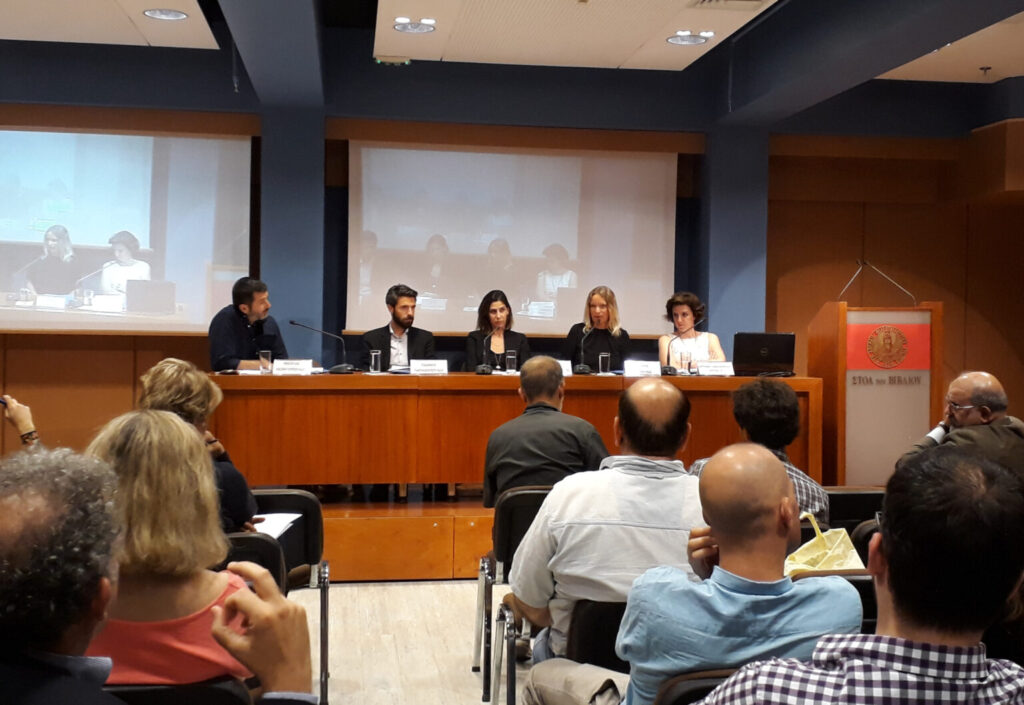
Reporters United, then a loose association of investigative journalists, first encountered Maria Efimova on the day of her arrest, while in Greek custody. Recognising her a whistleblower, founding members of the network helped to arrange her legal defence, raised public awareness of her case through reporting in the media and events, and testified in her defence in court.
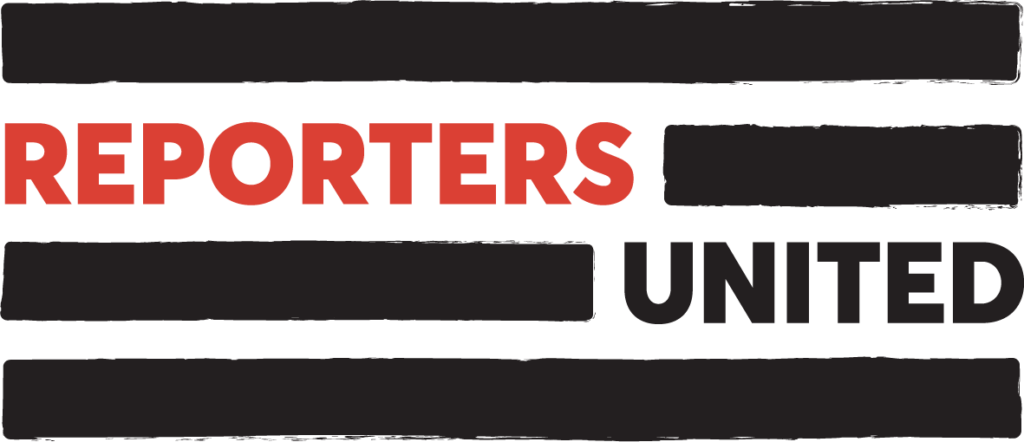

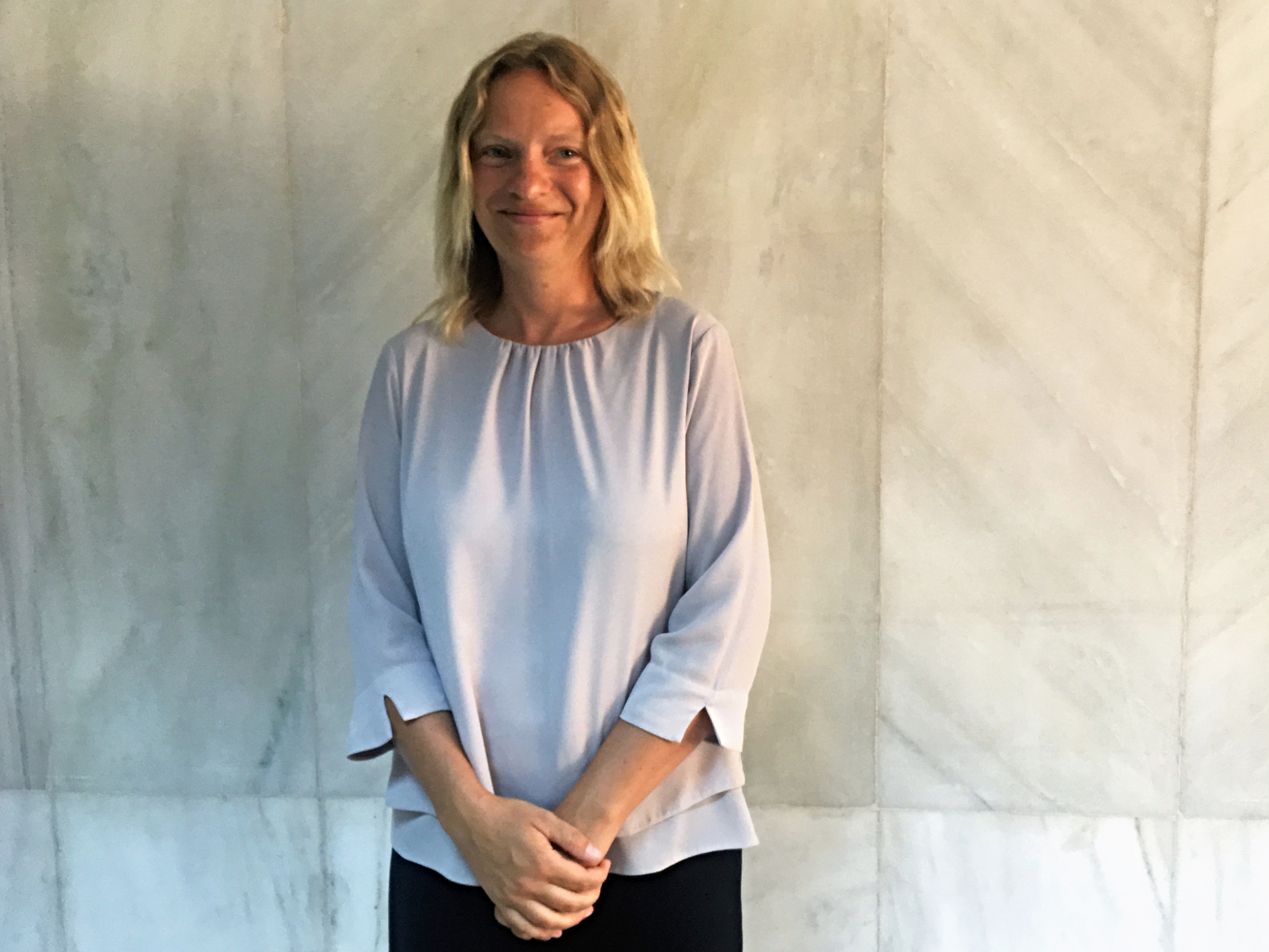



She is not a whistle-blower but a criminal fraudster and falsificator of financial documents